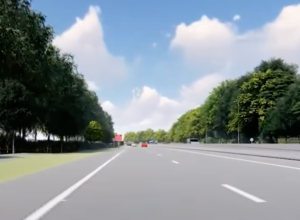The Government is to introduce green number plates in the autumn to help local authorities put in place new policies to incentivise people to own electric vehicles
As part of the Government’s plans to achieve net zero emissions by 2050, the plates will make it easier for cars to be identified as zero emission vehicles.
Drivers could benefit from local initiatives such as cheaper parking and cost-free entry into zero-emission zones where those with a green number plate will be recognised as eligible, says the Department for Transport (DfT).
The plates will be identifiable by a green flash on the left-hand side and will be available for zero emission vehicles only.
Secretary of State for Transport Grant Shapps said: “A green recovery is key to helping us achieve our net zero carbon commitments while also promoting economic growth. Green number plates could unlock a number of incentives for drivers and increase awareness of cleaner vehicles on our roads, showing people that a greener transport future is within our grasp.
“We are supporting small businesses to develop the transport tech of the future through a multi-million pound investment, ensuring that UK businesses remain at the forefront of low carbon innovation and research.”
The news follows the conclusion of a consultation, inviting comments from the public, local authorities and industry stakeholders from a range of sectors including motoring and consumer groups and vehicle manufacturers on how best to introduce green number plates.
To further accelerate the government’s plans to drive a green recovery, £12 million funding for ground-breaking research into the zero-emission market has also been announced to develop greener vehicles and help improve vehicle charging technology.
The funding, made available through the Office for Low Emission Vehicles (OLEV) and delivered through Innovate UK, will see £10 million for a new Zero Emission Vehicle Innovation Competition. This will invite applicants to bid for project funding to support advancements in both battery electric and hydrogen vehicles, as well as charging infrastructure.
OLEV is also providing £2 million to UK small and medium businesses to support their research into zero-emission vehicles in areas such as battery technology, which could be used by major vehicle manufacturers in future electric vehicle production.
The funding will help these businesses to drive local economic growth through research and development projects in areas including charging infrastructure and zero emission vehicles, which could in turn create over 6,000 skilled jobs, says the DfT.
























